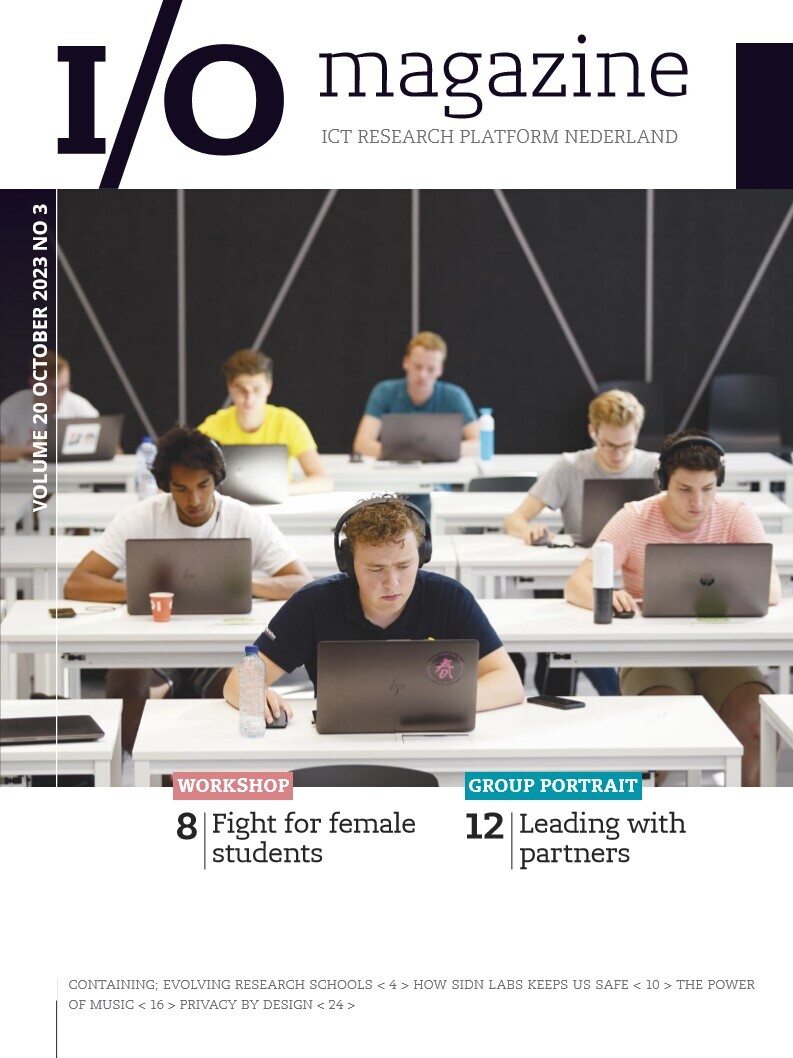
Eindhoven Software Engineering Researchers Featured in I/O magazine
15-Dec-2023
The newest issue of the I/O magazine, the newsletter of the ICT Research Platform Netherlands, features two articles about Eindhoven software engineering researchers.
In the first article, Michel Chaudron, Jacob Krüger and Lina Ochoa talk about the major challenges facing the group (and the software industry in general). Michel Chaudron stresses the vital importance of keeping the link to practice - rather than just getting bogged down in empirical studies: “Our group is good at collaborating with companies and we have a great connection to the industry in the Brainport Eindhoven technology region”, says Chaudron. Jacob Krüger, who joined the Software Engineering and Technology group as an Assistant Professor in September 2022, studies human factors in software development, in particular economic and psychological factors. By studying the economics of software development, he noticed how important it is to also look at how developers approach their work cognitively. Lina Ochoa joined the SET group in April 2023 as an Assistant Professor and focuses on the evolution of software ecosystems. She clarifies her work as follows: “Let’s say a team of software developers has released a software project, but after a while starts changing some features. A new version of the software is released and the changes will impact other teams of developers that rely on that project. One of the main challenges is to understand the people working on the software and the values they have.”
In the second article, Alexander Serebrenik, scientific director of the Institute for Programming research and Algorithmics (IPA), one of the three Dutch national Computer Science research schools, was recently invited to share his views on developments within the computer science research schools over the years in I/O Magazine. Serebrenik believes that despite the changes in the playing field, and in contradiction to a predicted end to the whole notion of “research school”, the role of IPA does not appear to have changed substantially in all these decades. As he puts it himself: “We still make sure that PhD students are trained fairly broadly, that they not only know about their own subject, but also have a broader view of the field of computer science. In training them, you have a spectrum of skills. At one end of that spectrum are basic skills such as writing, oral presentation and research methodology. That is what universities are responsible for. At the other end of the spectrum, you have subjects and skills needed for a specific doctoral project, which is primarily on the individual supervisors. Research schools are in between.”